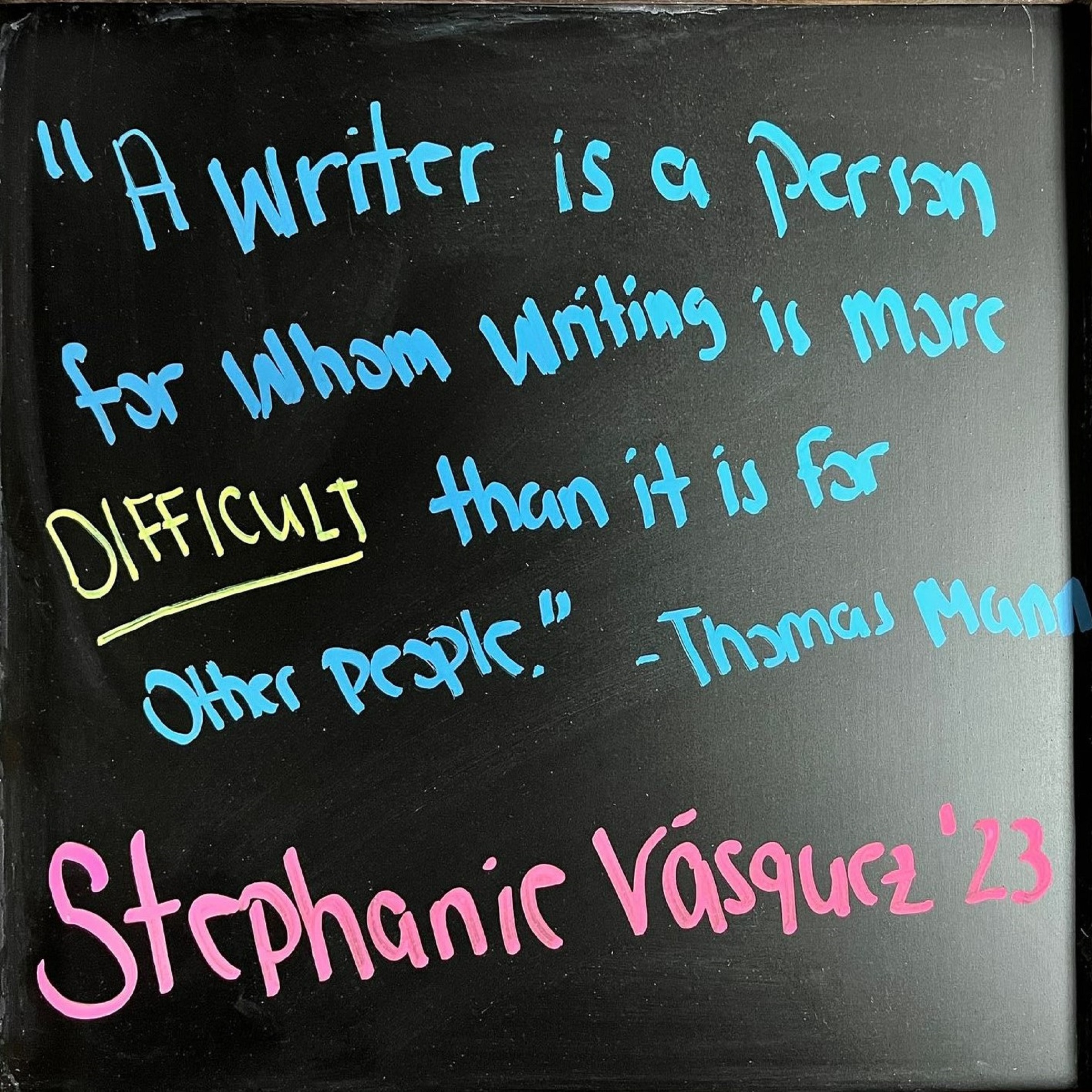By Danielle DePasquale
In an effort to craft properly paced sentences, it can be tricky deciding which punctuation marks to use. We use periods, question marks, and exclamation marks in our writing without hesitation, as we are aware of the grammatical implications and emphasis they contribute. But, when it comes to commas, colons, and semicolons, we are often unsure. So, what is the difference between using a comma, colon, and semicolon? Over the past few years, this has been a frequently asked question during writing center appointments. While these marks are close in proximity on the keyboard and similar in appearance, each have a different role when formulating sentences. Let’s start with commas. Commas serve many purposes, but they most commonly function as pauses within a sentence. When writing, I often read my sentences aloud and put commas where I naturally take breaks when reading. Ultimately, their use or omission is up to the discretion of the writer. However, as in most principles, I advise against over or under use. I also wanted to make a quick mention of the Oxford comma, as this is another FAQ. When listing items or ideas, some may choose to use the Oxford comma, which is the last comma in the list. However, it is a more of a style choice. My recommendation is that if you choose to use the Oxford comma, just ensure that it is placed in the correct part of the sentence. The next debate is the use of a colon versus a semicolon. To put it simply, colons are used to introduce as statement. I like to think of a colon as an equal sign, as it precedes the announcement of an idea or quotation. In contrast, a semicolon connects two separate sentences that are related. The trick with using a semicolon is to ensure that each idea on either side of the semicolon reads as a full sentence. For more information, I provided a link with some examples of correct and incorrect uses of each punctuation mark in the hopes of making the differences clearer. Using such punctuation accurately will only enhance one’s writing sophistication and clarity.
Test your knowledge with this comma quiz.












